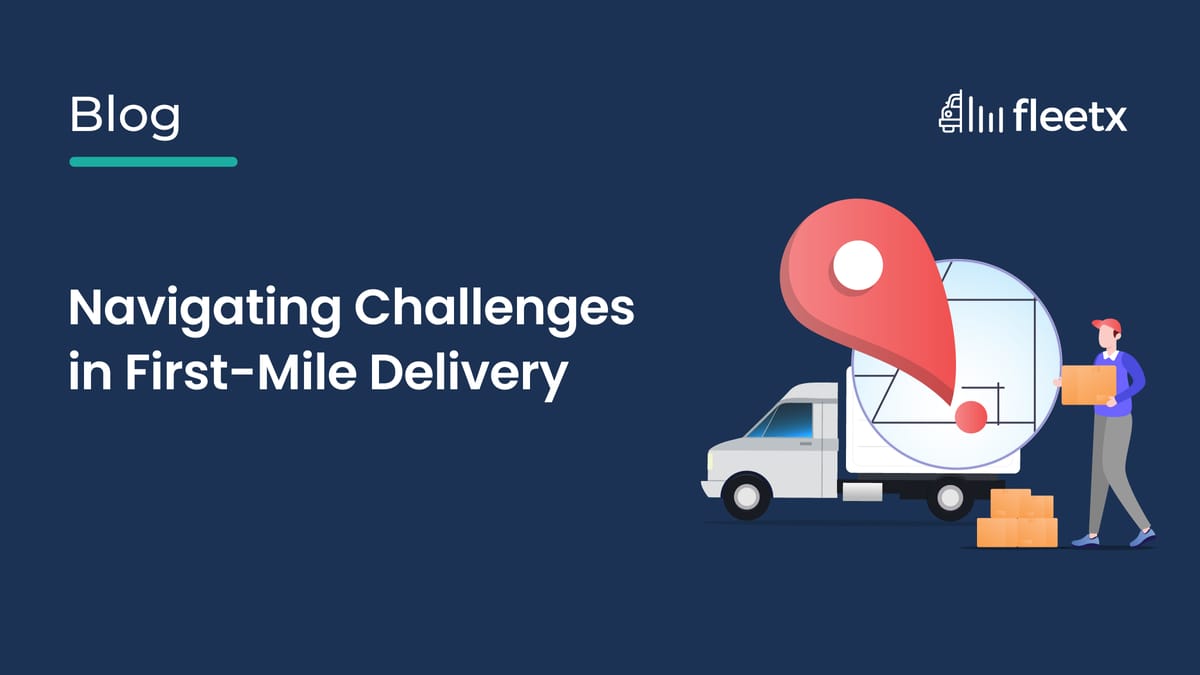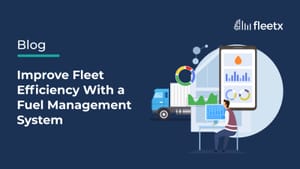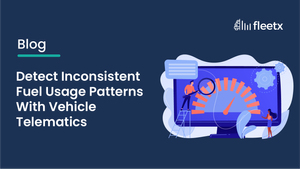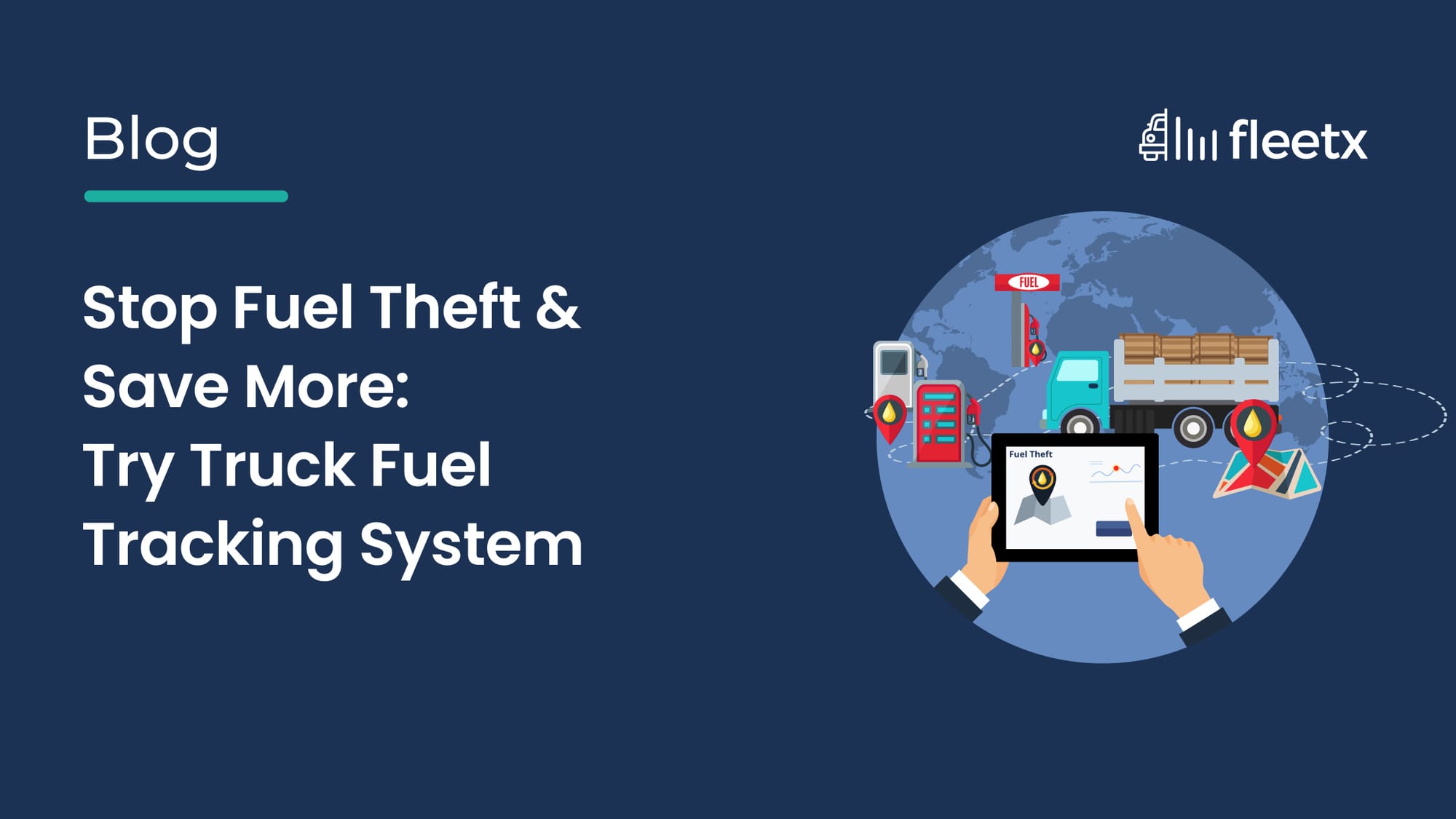
Across the global economy, all established and growing businesses rely on logistics and transportation services. The offerings may include manufactured goods or diversified services, but transportation is a valuable asset to ensure effective movement and delivery of the goods and services.
The Indian economy relies heavily on the country’s wide trucking network and the ever-rising fuel prices generate quite an uproar! In the face of such an urgency, fuel theft harms business health significantly. Now, fleet operators have found an effective tool - truck fleet fueling management systems, for preventing such thefts. Embracing technology upgrades enables efficient fuel management and contributes toward controlling costs and perfecting operations.
Instances of Theft – Need for Fuel Tracking in the Trucking Industry
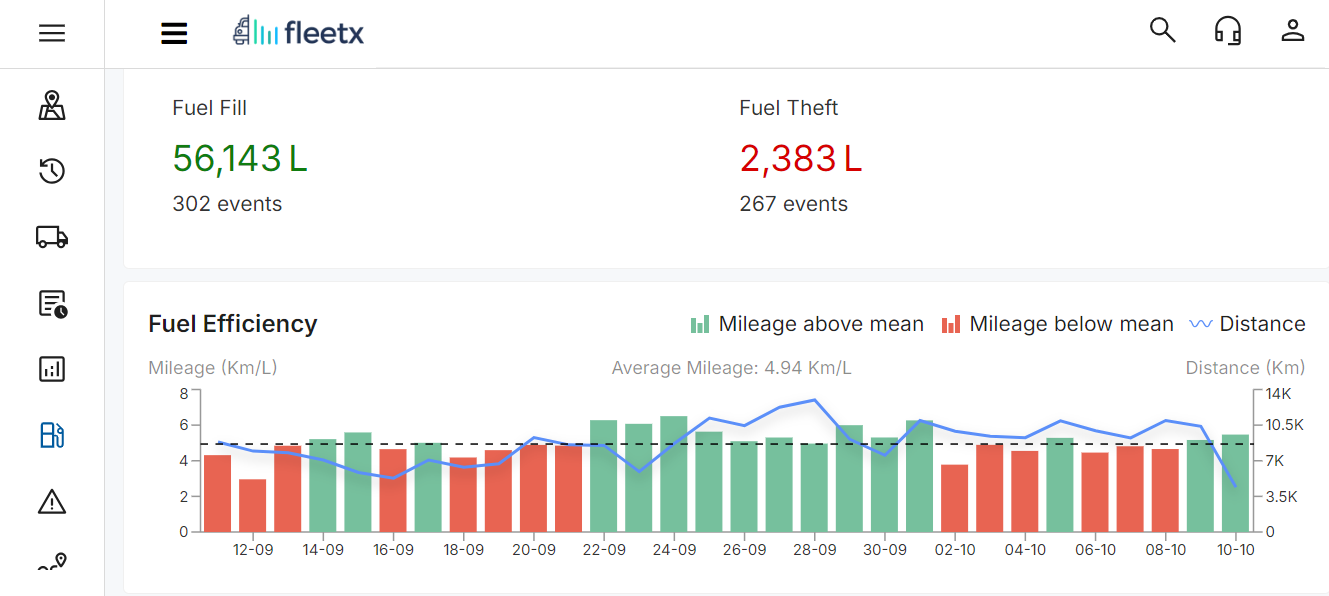
The varied ways in which fuel thefts occur in India include:
Draining Fuel from Tanks - With no insightful evidence of fuel usage or the distance covered, drivers use the gap to drain fuel by drilling or damaging the fuel tanks.
Fuel Siphoning – Hoses or pumps are used by thieves to siphon fuel directly from the tanks, more so in parked or unattended trucks.
Manipulating Invoices – Invoice tampering occurs in petrol pumps where the station staff aids the driver’s tactics.
Stealing from Return Line – Most vehicles have return and supply lines. Service maintenance providers enable the thieves by T-fitting on the return line, collecting the fuel that should have been returned to the fuel tank.
Odometer Manipulation – Several drivers resort to odometer damage to keep fleet managers in the dark or tamper the vehicle readings of the distance traveled.
Contaminating Vehicle Fuel – Drivers, at times, mix impure fuel substances such as kerosene and acetylene as one of the means to steal fuel, impacting the vehicle’s health.
Excuses on Vehicle Maintenance – Often drivers blame faulty vehicle maintenance for low mileage issues. However, the real cause of concern is fuel pilferage.
Truck Fuel Management System to Rescue!
Merging hardware and software elements such as a truck fuel sensor and IoT, a fuel monitoring system offers real-time insights and alerts about mileage, fuel levels, fills or thefts, and more. Maximizing fuel efficiency, optimizing costs, and minimizing environmental impacts are the primary objectives of fuel management systems.
In terms of financial impact, a truck fuel tracking system reduces your operational costs by identifying wasteful practices and early problem detection for timely maintenance efforts. The proactive measures keep the fleet's health under check and reduce expenses.
Trucking GPS Fuel Management Systems - Challenges and Opportunities
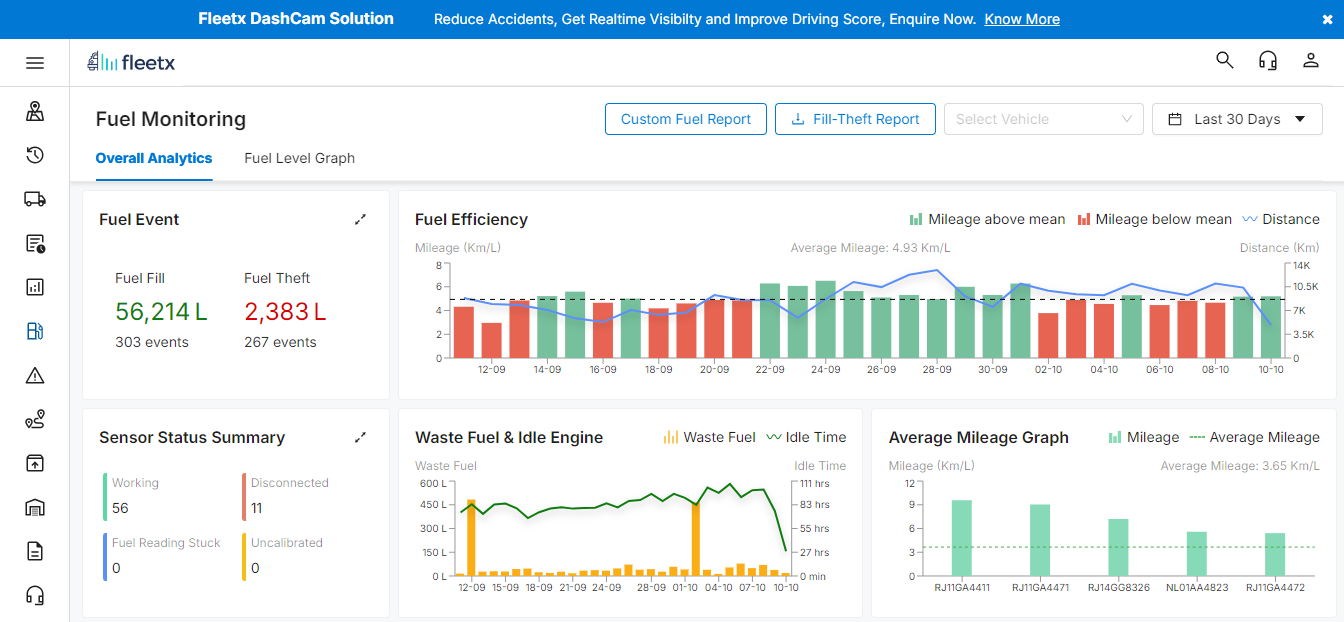
Pilferage and Fuel Fraud Tracking
The lack of a robust truck fuel management system creates a disability for fleet managers, in terms of fuel consumption levels. Inadequate fuel tracking promotes fuel theft and fraud.
Managing Budget Issues
The inability to monitor real-time fuel consumption and simultaneous fuel expenses creates unnecessary financial risks and impacts your business’ profitability.
Reporting Resource Underutilization
The unavailability of fuel expense insights can lead to inaccurate resource allocation. That escalates to incorrect route planning, lower operational efficiency, and suboptimal mileage for the logistics business.
Overcoming Competitive Shortfalls
Competitors using trucking GPS and fuel management systems have an upper hand in optimizing fuel costs, better operational efficiency, and higher profits, affecting the market competitiveness.
Automation and Data Accuracy
An efficient fuel management software combines the benefits of software and hardware upgrades, arming fleet operators with accurate fuel insights and improving the decision-making process.
Sustainability
Fuel insights are key to capturing data on the vehicle’s carbon footprint. In the absence of a truck fuel monitoring system, the scope of environmental harm is widened and it also creates compliance issues.
Truck Fuel Tracking System - Key Selection Features
- All Round Fuel Analytics – Data related to mileage, idling time, consumption per hour, and more
- Real-Time Fuel Monitoring – Fuel level and engine status data, along with historical reports
- Real-Time Fuel Event Alerts – Alerts for fuel fill and theft, along with location data for better event reconstruction
Make a Difference with Truck Fuel Theft Prevention Measures
Fuel theft is a heavy burden on the modern economy. Drivers are innovating newer techniques regularly to misuse the holes in the fuel monitoring processes and take undue advantage. Businesses need to implement proactive countermeasures to address the issue.
An efficient fuel tracking system is the need of the hour. To safeguard businesses against rising fuel prices, organizations have to rewire their strategies. Employing smart technologies in every aspect of the operations, including logistics fuel management, is a great place to start.

